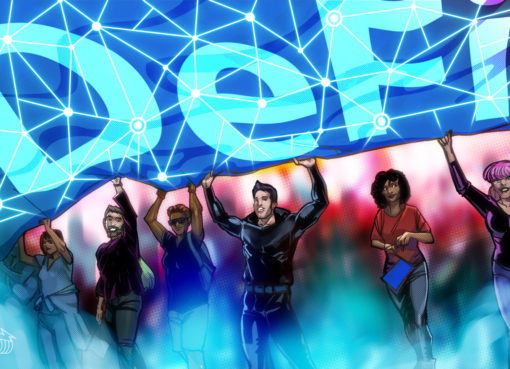In 2019, when I was working as a reporter for the Washington Post, I “came out” as faceblind. I was a little concerned about telling everyone that I have prosopagnosia—a rare neurological disorder that makes it difficult for me to recognize faces—because I fretted that people would think that it made me bad at my job. That didn’t happen, thank goodness, but I did get some alarming emails from people who told me not to be so open about my disorder. “You might get targeted by a stalker or a mugger,” one reader wrote.
It didn’t seem likely that a criminal would specifically target me after reading my article—I mean, newspaper readership is not exactly off the charts. But then I wrote an entire book on the topic, and I have been making the media rounds talking about how, for instance, I once thought that my own reflection was a woman with a poor sense of personal space. So, at the urging of my worried family, I recently called Jennifer Storey, a criminologist at the University of Kent, to ask if I was at risk for stalking. She had good news—and bad.
The good? It’s unlikely that some stranger is going to see me on TV and decide that I’d be a good stalking victim.
“Most people are not stalked by strangers,” she said. Rather, acquaintances and exes are the people you need to be worried about.
The bad news? Just by dint of being a woman, I am at greater risk than I realized. According to the CDC, 1 in 3 women and 1 in 6 men experience stalking at some point in their lives. Since there are about 10 million faceblind Americans, that adds up to about 2 million people living the nightmare of being unable to protect themselves from an effectively invisible menace.
Read More: Why You Can’t Recognize Other People’s Faces
Less than 2% of stalking cases escalate to homicide, but that’s cold comfort for the victims—92% of whom experience mental health problems as a result of the experience. The uncertainty and the ubiquity of a stalker’s presence really haunt people, Storey says, and these factors are only heightened for people with prosopagnosia.
“Stalking could happen anywhere. It could be online, at your work, at your home. You have to be almost hypervigilant and that’s stressful and taxing,” Storey explained.. “For someone who is faceblind, that would just compound how difficult it is, because you can’t protect yourself. It would be horrifying.”
This nightmare scenario happened to Riley, a faceblind American living abroad I spoke to for my research. (All the names and identifying details of the stalking victims in this story have been changed for their protection.) She went on two dates with a man who was part of her extended friend group, and she quickly determined that it wasn’t a match. When he wouldn’t take no for an answer, Riley blocked his number.
About a week later, he started posting pictures of Riley, out and about in her neighborhood, in a group chat.
“He lived an hour away, so he was making special trips to do this, and I felt super unsafe,” she revealed. “I became afraid to leave my apartment. I couldn’t even run errands without having a friend come with me.”
One day, while grocery shopping, Riley’s friend spotted her ex, and the two women snuck away without him even noticing. This was exactly the right move, said Storey. “The thing with stalking is, it’s a way of forcing a relationship on another person. So any contact that you have with them is exactly what they want.”
Being ignored will cause most stalkers to give up, but some get creative. “If they’re not getting the reaction that they want, they’re going to do what they can to get that reaction,” says University of Colorado criminology professor Patrick Brady.
A case in point: Aaron, who is faceblind, was once approached at a bus stop by a man with a conspicuous bowtie. “He said he’d been following me for months. I think he wanted me to be impressed or something,” Aaron says. “I almost explained to him that I can’t recognize people— then I was like, wait, this isn’t an old friend I overlooked, this is my stalker.”
After that exchange, Aaron started seeing the man with the bowtie everywhere, including in the hospital when he had an emergency appendectomy. “I was sure he was going to kill me,” Aaron says.
Another characteristic of mine that puts me at risk for stalking is my friendliness, Storey said. Like many faceblind people, I will chat with anyone who makes eye contact with me, because I don’t want to accidentally snub someone.
Riley has also adopted this strategy, and one time, at a music festival, it spelled disaster. She spotted a familiar-looking guy, made eye contact, and went in for a big hug. Then, mid-embrace, Riley realized that she was hugging her stalker.
“The worst thing was, he was emanating this insane, intense amount of joy,” she says. “I felt sorry for him, and then I started having a panic attack.”
Friendly behavior is easy to misinterpret, and that’s why baristas and cashiers are among the people who are most likely to be stalked, Storey said.
Prisha, a faceblind cashier, had been stalked by several customers over the years, the scariest of whom seemingly took advantage of her disability. “He kept coming through my line, and I was telling him all these things about myself. I didn’t realize he was the same guy,” she said.
Once she realized what was going on, Prisha told her colleagues, and they rallied in her defense and banned the guy from the store. This is exactly what the experts say to do. “It’s a good idea to take stalking seriously, document it thoroughly, and tell your friends and coworkers,” Storey said.
Unfortunately, Prisha is in the minority. Many victims of stalking never tell anyone, because they feel like others will say they’re making a big deal out of nothing. After all, hanging out at the bus stop by your ex-girlfriend’s workplace isn’t illegal. Neither is texting her hundreds of times a day. But if these things are done to intimidate or scare someone, they constitute stalking, which is a crime in all 50 states.
Fear of sounding crazy or over-dramatic is all too familiar for faceblind folks. We often keep quiet about our invisible disability because it’s hard to explain. It’s also unpredictable. For instance, while I have failed to recognize my own brother, I recently spotted a friend I hadn’t seen in 15 years from across a room. How did I do it? I have no idea — perhaps it was the way he moved — his “kinesthetic melody,” as British neurologist Oliver Sacks called it. I was simultaneously proud of myself and embarrassed—what if people think I am a fraud?
Admitting vulnerability and asking for help is a risky, scary thing to do, and may not always benefit you in the longrun. At heart, the answer hinges on whether you believe whomever you’re telling has your best interest at heart. By telling everyone about my faceblindness, I am making a big assumption: That the general public is not going to take advantage of my situation. It’s an optimistic stance, and I sincerely hope never to be proven wrong.
Like Prisha, Riley decided that the benefits of telling people about her faceblindness and her stalker outweighed the potential consequences—and the outpouring of support that she received was one bright spot during a very dark chapter of her life. “It was such a weird situation and I was afraid my friends would say, ‘Oh, Riley is so dramatic, she’s making things up,’ but they totally got it, and they helped keep me safe.”



